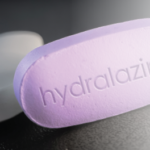CHICAGO—Promising therapeutic targets for rheumatic diseases were the focus of a plenary session here at the ACR/ARHP 2011 Annual Meeting in November. [Editor’s note: This session was recorded and is available via ACR SessionSelect at www.rheumatology.org.]
Presenters discussed discoveries and treatments for systemic sclerosis, rheumatoid arthritis (RA), vasculitis, and Behçet’s disease.
Rituximab for ANCA-Associated Vasculitis
John H. Stone, MD, MPH, director of clinical rheumatology at Massachusetts General Hospital in Boston, focused on results from the RAVE trial, which is evaluating rituximab for the treatment of antineutrophil cytoplasmic antibody (ANCA)–associated vasculitis. Traditionally, cyclophosphamide and glucocorticoids have been the mainstay of treatment for these patients. Results published in 2010 focused on six-month results from the RAVE trial and showed that rituximab was not inferior to cyclophosphamide (CYC) for remission induction.1 Dr. Stone’s presentation focused on six to 18 months of follow-up data from the RAVE trial.
Nearly 200 patients with severe Wegener’s granulomatosis or microscopic polyangiitis, all of whom were ANCA positive, received one to three pulses of methylprednisolone. The patients were then randomized to receive rituximab infusions and CYC placebo for three to six months or rituximab placebo infusions and CYC for three to six months. After six months, the two randomized groups received a placebo for 12 to 15 months or azathioprine for 12 to 15 months.
“Let me emphasize, for 12 to 15 months, following the six-month outcome, patients in the rituximab group were on no medication after they were tapered off prednisone,” Dr. Stone said.
Investigators found that a single course of rituximab was just as effective as 18 months of CYC and azathioprine. “Relapses were more common in patients who were PR3-ANCA positive, had Wegener’s, and had relapsing disease at baseline,” Dr. Stone said. The risk for severe flare with rituximab appears low as long as B cells remain depleted and ANCA remains negative, Dr. Stone said.
“We hope ongoing mechanistic studies will enable us to predict who’s at risk for disease flare and when that disease will occur,” he said.
JAK2 in Systemic Sclerosis
Janus kinase 2 (JAK2) inhibitors can serve as a possible treatment for fibrotic diseases, said Clara Dees, PhD, a researcher in the department of medicine 3, rheumatology and immunology, at the University of Erlangen in Nuremberg, Germany. She explained that activated JAK2 is implicated in myeloproliferative diseases and that JAK2 inhibitors are currently under evaluation in clinical trials.
Dr. Dees is involved in the study of JAK2 signaling in active systemic sclerosis patients. This research has found that JAK2 signaling is indeed active in these patients and reduces collagen expression. “JAK2 is persistently active in fibroblasts. Inhibition of JAK2 reduces the intrinsic activation of systemic sclerosis fibroblasts,” Dr. Dees said.


